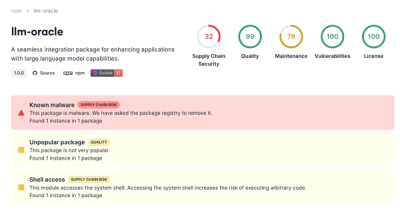react-native-testing-library
Simple React Native testing utilities helping you write better tests with less effort





Appreciation notice: This project is heavily inspired by react-testing-library. Go check it out and use it to test your web React apps.
The problem
You want to write maintainable tests for your React Native components without testing implementation details, but then you're told to use Enzyme, which only supports shallow rendering in React Native environment. And you want to render deep! But doing so with react-test-renderer is so painful.
You would also like to use the newest React features, but you need to wait for your testing library's abstractions to catch up and it takes a while.
This solution
The react-native-testing-library is a lightweight solution for testing your React Native components. It provides light utility functions on top of react-test-renderer letting you always be up to date with latest React features and write any component tests you like, be it shallow or deeply rendered ones. But really not any, it prevents you from testing implementation details because we stand this is a very bad practice.
This library is a replacement for Enzyme.
Example
import { render, fireEvent } from 'react-native-testing-library';
import { QuestionsBoard } from '../QuestionsBoard';
function setAnswer(question, answer) {
fireEvent.changeText(question, answer);
}
test('should verify two questions', () => {
const { getAllByName, getByText } = render(<QuestionsBoard {...props} />);
const allQuestions = getAllByName('Question');
setAnswer(allQuestions[0], 'a1');
setAnswer(allQuestions[1], 'a2');
fireEvent.press(getByText('submit'));
expect(props.verifyQuestions).toBeCalledWith({
'1': { q: 'q1', a: 'a1' },
'2': { q: 'q2', a: 'a2' },
});
});
Installation
Open a Terminal in your project's folder and run:
yarn add --dev react-native-testing-library
This library has a peerDependencies listing for react-test-renderer, pretty-format and, of course, react. Make sure to install them too!
As you may have noticed, it's not tied to React Native at all – you can safely use it in your React components if you feel like not interacting directly with DOM.
Usage
render
Defined as:
function render(
component: React.Element<*>,
options?: {
/* You won't often use this, but it's helpful when testing refs */
createNodeMock: (element: React.Element<*>) => any,
}
): RenderResult {}
Deeply render given React element and returns helpers to query the output. For convenience it also returns react-test-renderer's instance and renderer objects, in case you need more control.
import { render } from 'react-native-testing-library';
const { getByTestId, getByName } = render(<Component />);
Returns a RenderResult object with following properties:
getByTestId: (testID: string)
A method returning a ReactTestInstance with matching testID prop. Throws when no matches.
Note: most methods like this one return a ReactTestInstance with following properties that you may be interested in:
type ReactTestInstance = {
type: string | Function,
props: { [propName: string]: any },
parent: null | ReactTestInstance,
children: Array<ReactTestInstance | string>,
};
getByName: (name: string | React.Element<*>)
A method returning a ReactTestInstance with matching name – may be a string or React Element. Throws when no matches.
getAllByName: (name: string | React.Element<*>)
A method returning an array of ReactTestInstances with matching name – may be a string or React Element.
getByText: (text: string | RegExp)
A method returning a ReactTestInstance with matching text – may be a string or regular expression. Throws when no matches.
getAllByText: (text: string | RegExp)
A method returning an array of ReactTestInstances with matching text – may be a string or regular expression.
getByProps: (props: { [propName: string]: any })
A method returning a ReactTestInstance with matching props object. Throws when no matches.
getAllByProps: (props: { [propName: string]: any })
A method returning an array of ReactTestInstances with matching props object.
update: (element: React.Element<*>) => void
Re-render the in-memory tree with a new root element. This simulates a React update at the root. If the new element has the same type and key as the previous element, the tree will be updated; otherwise, it will re-mount a new tree.
unmount: () => void
Unmount the in-memory tree, triggering the appropriate lifecycle events
When using React context providers, like Redux Provider, you'll likely want to wrap rendered component with them. In such cases it's convenient to create your custom render method. Follow this great guide on how to set this up.
shallow
Shallowly render given React copmonent. Since it doesn't return helpers to query the output, it's mostly adviced to used for snapshot testing (short snapshots are best for code reviewers).
import { shallow } from 'react-native-testing-library';
test('Component has a structure', () => {
const { output } = shallow(<Component />);
expect(output).toMatchSnapshot();
});
FireEvent API
fireEvent: (element: ReactTestInstance, eventName: string, data?: *) => void
Invokes named event handler on the element or parent element in the tree.
import { View } from 'react-native';
import { render, fireEvent } from 'react-native-testing-library';
import { MyComponent } from './MyComponent';
const onEventMock = jest.fn();
const { getByTestId } = render(
<MyComponent testID="custom" onMyCustomEvent={onEventMock} />
);
fireEvent(getByTestId('custom'), 'myCustomEvent');
fireEvent.press: (element: ReactTestInstance) => void
Invokes press event handler on the element or parent element in the tree.
import { View, Text, TouchableOpacity } from 'react-native';
import { render, fireEvent } from 'react-native-testing-library';
const onPressMock = jest.fn();
const { getByTestId } = render(
<View>
<TouchableOpacity onPress={onPressMock} testID="button">
<Text>Press me</Text>
</TouchableOpacity>
</View>
);
fireEvent.press(getByTestId('button'));
fireEvent.doublePress: (element: ReactTestInstance) => void
Invokes doublePress event handler on the element or parent element in the tree.
import { TouchableOpacity, Text } from 'react-native';
import { render, fireEvent } from 'react-native-testing-library';
const onDoublePressMock = jest.fn();
const { getByTestId } = render(
<TouchableOpacity onDoublePress={onDoublePressMock}>
<Text testID="button-text">Click me</Text>
</TouchableOpacity>
);
fireEvent.doublePress(getByTestId('button-text'));
fireEvent.changeText: (element: ReactTestInstance, data?: *) => void
Invokes changeText event handler on the element or parent element in the tree.
import { View, TextInput } from 'react-native';
import { render, fireEvent } from 'react-native-testing-library';
const onChangeTextMock = jest.fn();
const CHANGE_TEXT = 'content';
const { getByTestId } = render(
<View>
<TextInput testID="text-input" onChangeText={onChangeTextMock} />
</View>
);
fireEvent.changeText(getByTestId('text-input'), CHANGE_TEXT);
fireEvent.scroll: (element: ReactTestInstance, data?: *) => void
Invokes scroll event handler on the element or parent element in the tree.
import { ScrollView, TextInput } from 'react-native';
import { render, fireEvent } from 'react-native-testing-library';
const onScrollMock = jest.fn();
const eventData = {
nativeEvent: {
contentOffset: {
y: 200,
},
},
};
const { getByTestId } = render(
<ScrollView testID="scroll-view" onScroll={onScrollMock}>
<Text>XD</Text>
</ScrollView>
);
fireEvent.scroll(getByTestId('scroll-view'), eventData);
debug
Log prettified shallowly rendered component or test instance (just like snapshot) to stdout.
import { debug } from 'react-native-testing-library';
debug(<Component />);
flushMicrotasksQueue
Wait for microtasks queue to flush. Useful if you want to wait for some promises with async/await.
import { flushMicrotasksQueue, render } from 'react-native-testing-library';
test('fetch data', async () => {
const { getByText } = render(<FetchData />);
getByText('fetch');
await flushMicrotasksQueue();
expect(getByText('fetch').props.title).toBe('loaded');
});
query APIs
Each of the get APIs listed in the render section above have a complimentary query API. The get APIs will throw errors if a proper node cannot be found. This is normally the desired effect. However, if you want to make an assertion that an element is not present in the hierarchy, then you can use the query API instead:
import { render } from 'react-native-testing-library';
const { queryByText } = render(<Form />);
const submitButton = queryByText('submit');
expect(submitButton).toBeNull();
queryAll APIs
Each of the query APIs have a corresponding queryAll version that always returns an Array of matching nodes. getAll is the same but throws when the array has a length of 0.
import { render } from 'react-native-testing-library';
const { queryAllByText } = render(<Forms />);
const submitButtons = queryAllByText('submit');
expect(submitButtons).toHaveLength(3);








